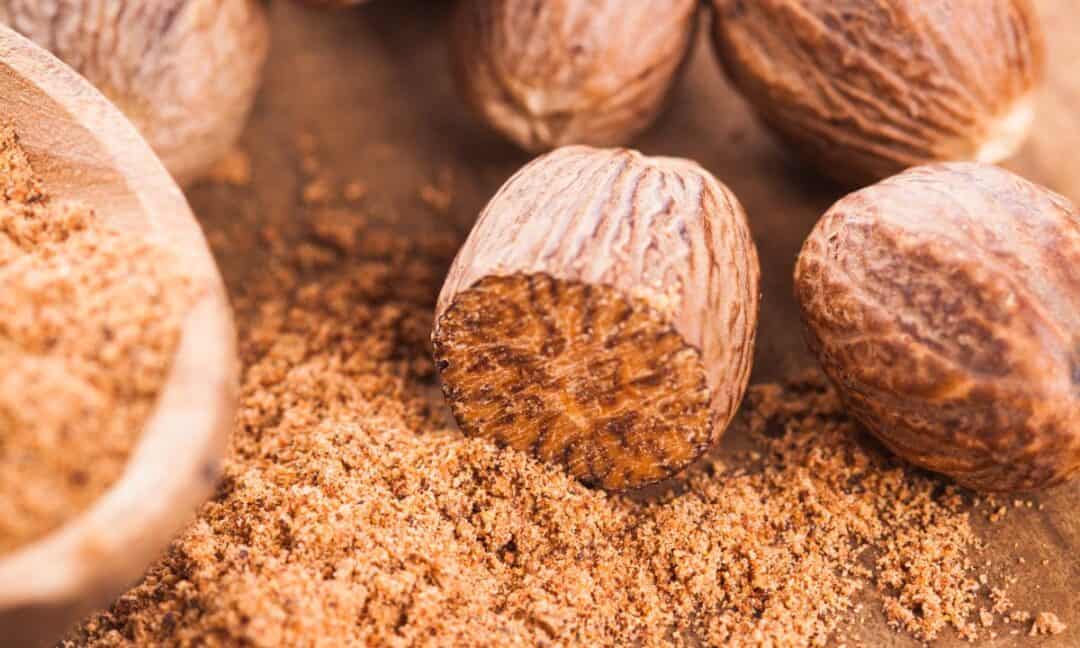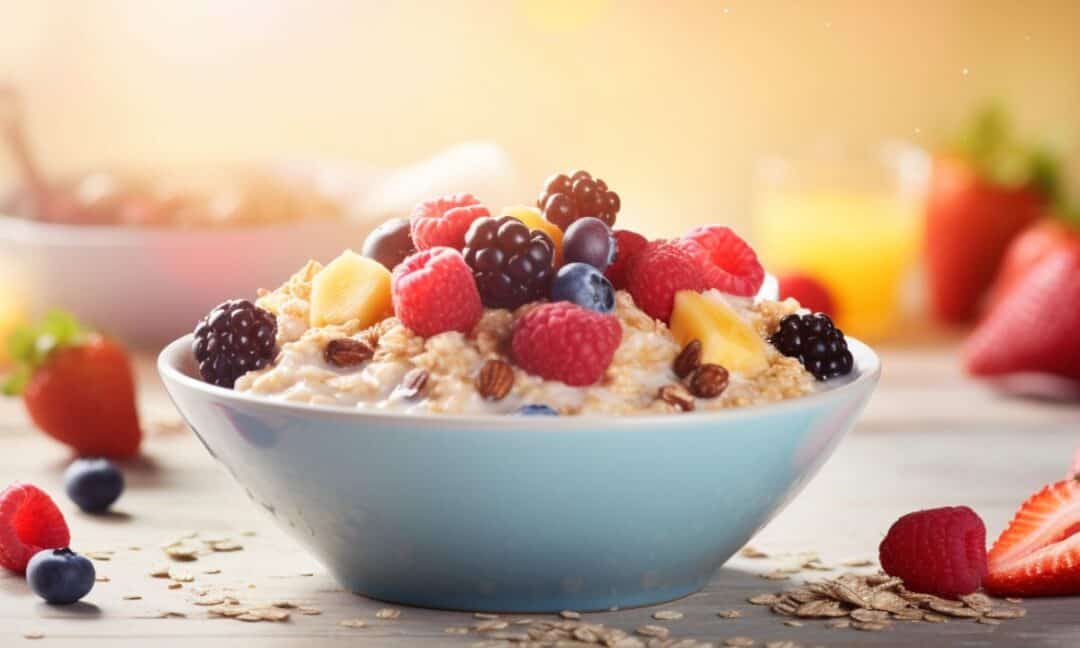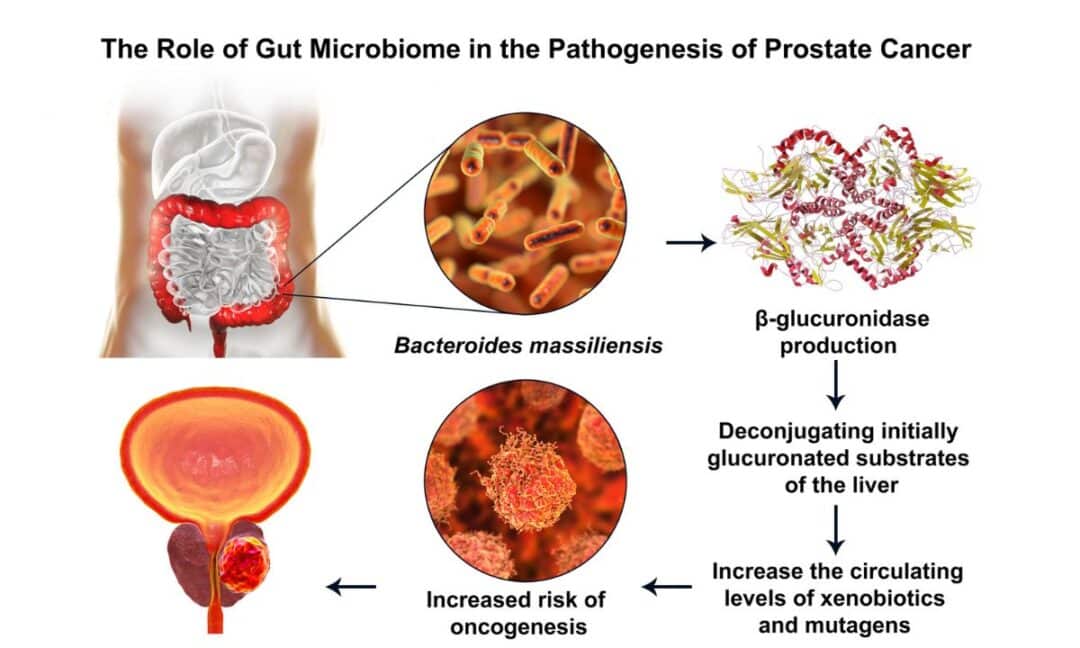When Is the Best Time to Eat Oatmeal for Weight Loss
For good reasons, oatmeal has long been a staple breakfast food in the United States. It’s not just a nutritious food; it’s also a great way to kick-start your day. But when is the best time to eat oatmeal?
The morning seems ideal for those on an oatmeal diet, aiming for weight loss goals, or simply looking for a healthy food option. Consuming oatmeal on an empty stomach can boost metabolism and provide a feeling of fullness for a longer period, ensuring that you don’t reach for unhealthy snacks before lunch.

One of the best ways to incorporate oatmeal into your daily diet is by choosing old-fashioned oats or Irish oatmeal. These types of oats have a low glycemic index compared to quick-cooking oats.
This means they release sugar slowly into the bloodstream, improving insulin sensitivity and ensuring sustained energy. They also pack a higher amount of grams of fiber, making them a good source of fiber. This is essential for gut health and can help manage blood cholesterol levels.
Speaking of cholesterol, numerous studies have linked the consumption of oat bran and whole oats to lower cholesterol. This health claim has been recognized, making oatmeal an effective way to combat cardiovascular disease.
However, while oatmeal is a good option, watching for much sugar is essential. Many breakfast cereals and packaged oatmeal have added sugar, which can quickly negate the health benefits.
Brown sugar or maple syrup might seem healthy, but adding too much can lead to weight gain. Instead, a better option would be to sweeten your oatmeal with fresh fruit or almond milk.
That’s not to say that all oat products are created equal. The nutritional profile varies among oat groats, flakes, and other types. For instance, oat groats are the whole oat kernel and are the most nutritious, while quick-cooking oats are processed and might not offer the same health benefits.
Oatmeal isn’t just limited to the breakfast table. Some individuals find that consuming oatmeal as a pre-workout meal provides sustained energy for their cardio sessions.
Also, for those not so keen on the traditional texture of oatmeal, blending it with egg whites or topping with chia seeds can change its consistency and add an extra nutritional punch.
While fad diets come and go, oatmeal has stood the test of time as a healthy diet choice. However, like any other food, moderation is key. It’s essential to be wary of how much oatmeal you consume daily and keep track of any added ingredients like brown sugar.
The Bottom Line
Oatmeal is a versatile and nutritious food, suitable for consumption at any time of the day. However, for maximum health benefits and to aid in weight loss goals, having it in the morning seems the most effective way.
Always check the label for added sugars and aim for options with a high fiber content. And remember, while oatmeal is an excellent addition to any daily diet, pairing it with other protein sources, like egg whites or almond milk, and vitamin E-rich foods can further enhance its benefits.
Heart Health: Decreased Risk, Anti-inflammatory Benefits

Eating oats at the right time can have significant benefits for heart health. Oatmeal is a great choice for promoting a healthy heart. Let’s explore how incorporating oats, a nutritious grain, into your diet can reduce the risk of heart disease and stroke while providing anti-inflammatory benefits.
Oat consumption is crucial in reaping these health advantages.
Reduces the risk of heart disease and stroke
Oatmeal, rich in oats, contains a type of soluble fiber called beta-glucan, which has been shown to impact heart health positively. When consumed regularly, oats’ beta-glucan helps lower LDL cholesterol levels, commonly known as “bad” cholesterol.
High levels of LDL cholesterol, commonly referred to as “bad” cholesterol, can contribute to plaque development in the arteries, increasing the risk of heart disease and stroke. Incorporating oats into your diet can help lower LDL cholesterol levels and promote heart health.
By including oats in your diet, especially in the morning or as part of a balanced breakfast, you can actively work towards reducing your risk of cardiovascular diseases. The high fiber content in oats promotes healthy digestion and aids in maintaining optimal cholesterol levels.
It contains antioxidants that fight inflammation in blood vessels
Inflammation within blood vessels is a key factor contributing to various cardiovascular conditions. Consuming oats can help reduce inflammation and improve heart health.
Oatmeal, made from oats, is packed with antioxidants that combat inflammation, keeping your blood vessels healthy and reducing the risk of developing chronic conditions such as atherosclerosis.
The presence of phenolic compounds in oatmeal provides powerful antioxidant properties that help neutralize harmful free radicals in the body. These antioxidants prevent oxidative stress and protect against cellular damage, ultimately supporting heart health.
Helps lower blood pressure levels
High blood pressure is a significant risk factor for heart disease and stroke. Incorporating oatmeal into your daily routine may help manage blood pressure levels due to its unique nutritional composition.
Oatmeal contains minerals such as potassium and magnesium that promote healthy blood pressure regulation. Potassium helps relax blood vessel walls, allowing smoother blood flow and reducing strain on the cardiovascular system.
Magnesium maintains normal blood pressure by regulating muscle contractions within the arteries. Consuming oatmeal regularly supports healthy blood pressure levels and reduces the risk of hypertension-related complications.
Weight Loss: Oatmeal’s Role, Best Time for Weight Loss
Oatmeal can be a valuable addition to your diet. Its high fiber content aids in weight loss by promoting feelings of fullness, helping you consume fewer calories throughout the day.
High Fiber Content Aids in Weight Loss
Oatmeal is rich in soluble fiber, which forms a gel-like substance when combined with water. This gel helps slow digestion and keeps you fuller for longer periods. Oatmeal can support your weight loss efforts by reducing hunger pangs and cravings.
Consuming Oatmeal in the Morning Kickstarts Metabolism
Eating oatmeal in the morning can kickstart your metabolism for the day. Due to its complex carbohydrates and fiber content, oatmeal provides sustained energy without causing spikes in blood sugar levels. This steady release of energy helps keep you active and prevents overeating later.
Ideal Breakfast Option to Avoid Unhealthy Snacking
Starting your day with a bowl of oatmeal can help curb unhealthy snacking habits. Combining fiber and protein in oatmeal promotes satiety and reduces the likelihood of reaching for sugary or high-calorie snacks between meals.
By keeping you satisfied until lunchtime, oatmeal sets the tone for healthier eating choices throughout the day.
To make the most out of oatmeal for weight loss, it’s important to choose toppings wisely. Opting for fresh fruits like berries or sliced bananas adds natural sweetness and additional nutrients without excessive calories or added sugars.
While any time is technically suitable for enjoying a bowl of oatmeal, consuming it earlier may offer more benefits. Starting your morning with a nutritious breakfast sets a positive tone for healthy eating habits throughout the rest of the day.
Promoting Sleep: Consuming Oatmeal at Night for Better Sleep

Oatmeal is a delicious and nutritious breakfast option and can be enjoyed as a nighttime snack to promote better sleep. Incorporating oatmeal into your evening routine can benefit your sleep quality. Let’s explore why consuming oatmeal at night is the best time to enjoy this wholesome grain.
Oatmeal contains melatonin, a hormone that regulates sleep-wake cycles.
Melatonin plays a crucial role in regulating our sleep-wake cycles. It is a hormone the pineal gland produces in response to darkness, signaling our body that it’s time to rest. What many people may not know is that oatmeal naturally contains melatonin.
By consuming oatmeal at night, you are providing your body with an additional source of this hormone, which can help synchronize your internal clock and improve sleep quality.
Complex carbohydrates help promote serotonin production, aiding relaxation.
Oatmeal is rich in complex carbohydrates, which are digested slowly by the body, leading to a gradual release of glucose into the bloodstream.
This steady energy supply helps stabilize blood sugar levels and promotes the production of serotonin—a neurotransmitter known for its mood-regulating properties.
Serotonin helps induce calmness and relaxation, making it easier to unwind and fall asleep peacefully.
A warm bowl of oatmeal before bed can induce better-quality sleep
Something is soothing about enjoying a warm bowl of oatmeal before bed. The warmth from the cooked oats can comfort your body, helping you relax and prepare for sleep.
The high fiber content in oatmeal promotes satiety, preventing late-night hunger pangs that could disrupt your sleep.
To make your bedtime oatmeal even more enjoyable and beneficial:
- Experiment with different recipes: Try adding spices like cinnamon or nutmeg for added flavor and aroma.

- Include fruits: Fresh or dried fruits can add natural sweetness and nutrients. Consider adding sliced bananas, berries, or raisins to your oatmeal.

- Get creative with toppings: Sprinkle some chopped nuts, seeds, or a dollop of nut butter for added texture and taste.
- Opt for a smaller serving size: Consuming a cup of oatmeal should be sufficient for promoting sleep without feeling overly full.
It’s important to note that while oatmeal can contribute to better sleep quality, individual experiences may vary. If you have specific dietary restrictions or concerns, it’s always best to consult a healthcare professional before significantly changing your diet.
Cholesterol and Belly Fat: Lowering Cholesterol, Reducing Belly Fat
Keeping cholesterol levels in check and reducing belly fat are two important goals. Luckily, incorporating oatmeal into your diet can help you achieve both.
Soluble Fiber in Oatmeal Helps Reduce LDL Cholesterol Levels
Oatmeal is packed with soluble fiber, which has been shown to effectively lower LDL cholesterol levels. This type of fiber acts like a sponge in the digestive system, soaking up cholesterol and preventing it from being absorbed into the bloodstream.
By regularly consuming oatmeal, you can actively work towards improving your lipid profile and reducing the risk of heart disease.
Beta-Glucan Found in Oats Reduces Abdominal Fat Accumulation
In addition to its cholesterol-lowering properties, oatmeal contains a particular type of fiber called beta-glucan. This unique fiber has been found to reduce abdominal fat accumulation, particularly around the stomach area.
By incorporating oatmeal into your diet regularly, you may notice a reduced waist size and belly fat.
Regular Consumption Can Lead to Improved Lipid Profile
Regularly consuming oatmeal has been linked to improved lipid profiles in numerous studies. The combination of soluble fiber and beta-glucan found in oats works synergistically to lower LDL cholesterol levels while increasing HDL (good) cholesterol levels.
This lipid profile improvement can significantly benefit cardiovascular health and overall well-being.
Timing is vital as well. Consuming oatmeal as part of a balanced breakfast or snack earlier in the day rather than at night is recommended to maximize its effects on cholesterol reduction.
Incorporating oatmeal into your morning routine can provide sustained energy throughout the day while helping you maintain healthy blood sugar levels. Starting your day with a bowl of steel-cut oats or overnight oats topped with fresh fruits and nuts can be a delicious and nutritious way to kickstart your morning.
To reap the benefits of oatmeal for reducing belly fat, it’s essential to focus on portion control and avoid adding excessive amounts of sugar or high-calorie toppings.
Opting for plain oatmeal or adding natural sweeteners like honey or maple syrup in moderation can help you reduce unnecessary calories while still enjoying a tasty meal.
Digestive Health: Improved Digestion, Easier Weight Management
Maintaining a healthy digestive system is crucial for overall well-being. The question arises: when is the best time to eat oatmeal? Let’s explore how incorporating oatmeal into your diet can promote better digestion and aid in weight management.
High Fiber Content Promotes Healthy Digestion and Prevents Constipation
Oatmeal is renowned for its high fiber content, making it an excellent choice for promoting healthy digestion. The soluble fiber in oatmeal absorbs water in the digestive tract, forming a gel-like substance that softens stool and facilitates its passage through the intestines.
This helps prevent constipation and ensures regular bowel movements.
Supports a Healthy Gut Microbiome by Feeding Beneficial Bacteria

The gut microbiome plays a vital role in maintaining optimal digestive health. Oatmeal contains prebiotic fibers that serve as nourishment for beneficial bacteria in the gut. Our bodies do not digest these fibers; instead, they reach the colon intact, fermented by gut bacteria.
By supporting the growth of these beneficial bacteria, oatmeal contributes to a healthier gut microbiome.
Easier Weight Management Due to Increased feeling of being full and Reduced Calorie Intake
Incorporating oatmeal into your diet can be highly beneficial to manage your weight effectively. The high fiber content of oatmeal promotes satiety, helping you feel full and satisfied for longer periods after consumption.
This can reduce snacking between meals and contribute to overall calorie reduction.
Moreover, oatmeal has a low energy density, meaning it provides fewer calories per gram than other foods. This makes it an excellent option for those aiming to lose or maintain weight without sacrificing nutritional value.
In addition to its high soluble fiber content, oatmeal also contains insoluble fiber, which adds bulk to stools and aids in regular bowel movements. This soluble and insoluble fiber combination helps regulate appetite, control hunger pangs, and maintain a healthy weight.
Choosing minimally processed varieties without added sugars or artificial additives is essential to maximize the benefits of oatmeal for weight management.
Opting for plain oats and adding natural sweeteners or toppings allows you to control the calorie content while enjoying a delicious and nutritious meal.
Morning Boost: Benefits of Oatmeal in the Morning
Starting your day with a nutritious breakfast is essential, and oatmeal is a power-packed option that provides sustained energy throughout the day.
Not only is it delicious and easy to prepare, but it also offers numerous health benefits. Let’s explore why oatmeal is the best choice for your morning boost.
Power-packed breakfast option providing sustained energy throughout the day
Oatmeal is made from oats and whole grains rich in complex carbohydrates. The body digests These carbohydrates slowly, resulting in a gradual release of glucose into the bloodstream.
This slow release helps stabilize blood sugar levels and provides steady energy throughout the morning.
In addition to being an excellent source of energy, oatmeal also contains dietary fiber that aids in digestion and keeps you feeling full for longer periods. This can be particularly beneficial if you’re trying to manage your weight or avoid snacking on unhealthy foods later in the day.
Rich source of vitamins and minerals necessary for optimal functioning
Oats are packed with essential vitamins and minerals that contribute to overall health and well-being. They contain B vitamins, such as thiamine and folate, crucial in converting food into energy and supporting brain function.
Furthermore, oats are an abundant source of minerals like iron, magnesium, phosphorus, and zinc. Iron helps transport oxygen throughout the body, while magnesium supports muscle function and promotes relaxation.
Phosphorus contributes to healthy bones and teeth, while zinc supports immune system function.
Helps stabilize blood sugar levels, preventing mid-morning crashes
One significant advantage of consuming oatmeal in the morning is its ability to help stabilize blood sugar levels. The high fiber content slows down digestion and absorption of carbohydrates, preventing sudden spikes or drops in blood sugar levels.
This can be particularly beneficial for individuals with diabetes or those looking to maintain stable energy levels throughout the day.
By preventing mid-morning crashes, oatmeal can help you stay focused and productive, avoiding that sluggish feeling that often accompanies a drop in blood sugar levels. It provides a sustained energy source, allowing you to power through your morning activities without feeling tired or hungry.
Determining the Optimal Time to Eat Oatmeal
In conclusion, oatmeal is a versatile, nutritious breakfast option with numerous health benefits. Whether you’re looking to improve heart health, aid in weight loss, promote better sleep, reduce cholesterol levels, enhance digestion, or boost your morning energy levels, oatmeal can be a valuable addition to your diet.
It’s important to note that the best time to eat oatmeal depends on your specific goals and preferences.
To make the most of your oatmeal consumption, consider incorporating it into your morning routine for an energizing start. If you struggle with sleep or aim for weight loss, consuming oatmeal in the evening may be beneficial.
Ultimately, finding the optimal time for eating oatmeal is a personal choice that should align with your individual needs and lifestyle.
FAQs – When is the best time to eat oatmeal?
All the answers are fact-checked against government nutritional websites.
Can I add toppings like fruits and nuts to my oatmeal?
👉 Yes! It’s recommended to add fruits and nuts to your oatmeal as they enhance both its taste and nutritional value by providing additional vitamins, minerals, and healthy fats. Various government sources, including MyPlate, CDC, and NIH, encourage topping oatmeal with fruits and nuts to incorporate more food groups and increase fiber intake123.
Is instant oatmeal as nutritious as traditional rolled oats?
👉 Instant oatmeal is processed to cook faster than traditional rolled oats, and this processing may slightly reduce its nutritional content compared to less processed traditional rolled oats. Instant oatmeal is rolled more thinly and steamed longer, affecting its glycemic response and possibly its fiber content compared to traditional rolled oats456.
Can I prepare overnight oats for a quick breakfast option?
👉 Absolutely! Overnight oats are a popular make-ahead breakfast option that involves soaking oats in liquid (such as milk or yogurt) overnight in the refrigerator. They are ready to enjoy in the morning without any cooking required.
Are there any gluten-free options for those with gluten intolerance?
👉 Yes! Overnight oats are a quick breakfast option and can be prepared overnight by soaking them in a liquid like milk or yogurt in the refrigerator. Various methods can be used to prepare overnight oats, and they can be enjoyed cold or heated as desired in the morning without any additional cooking required78910.
Gluten-free oats are available and are processed separately from gluten-containing grains to avoid cross-contamination. However, not all oats are gluten-free due to potential cross-contamination during processing. If you have gluten intolerance or celiac disease, it’s crucial to look for oats labeled “gluten-free” to ensure they meet the requisite standards11121314.
Can oatmeal help lower high cholesterol levels?
👉 Yes, Oatmeal is beneficial for lowering high cholesterol levels, particularly LDL (bad) cholesterol, thanks to its soluble fiber content, notably beta-glucan. Clinical trials and meta-analyses have shown that regular consumption of oatmeal or oat β-glucans can significantly reduce LDL cholesterol levels and improve other markers of cardiovascular disease risk15161718.

Born and raised in a family of foodies, Georgia’s passion for cuisine was nurtured from a young age as she learned the intricacies of flavor and texture from her grandmother’s kitchen. As an adult, this early fascination blossomed into a full-fledged love affair with the culinary world.







